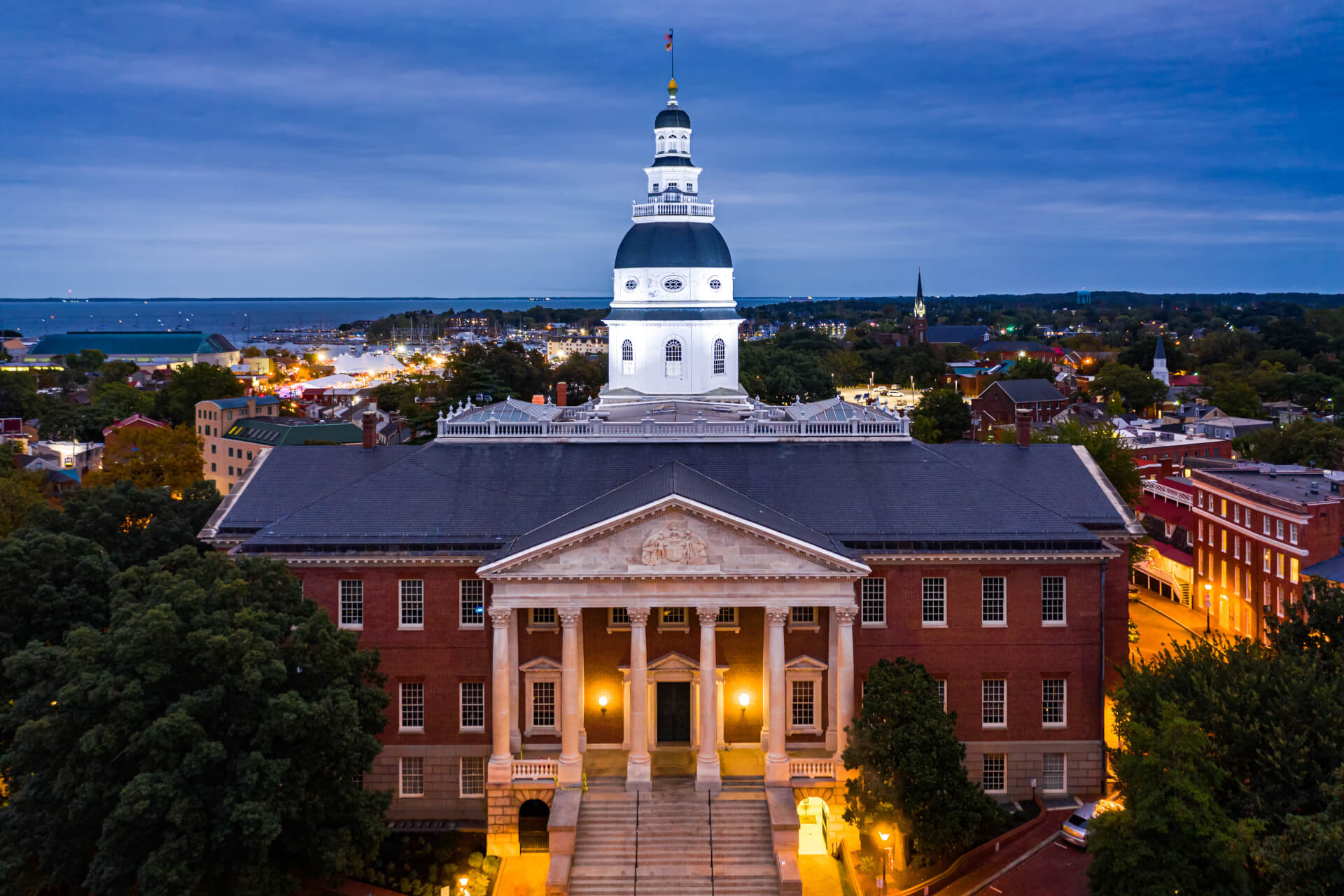Business Group Rips Legislators’ Votes, Presents Lawmakers With a Reading List

Every year, the Maryland Free Enterprise Foundation — Maryland Free, and previously known as Maryland Business for Responsive Government — issues a report card grading state lawmakers on a series of votes.
This year is no different — though in the wake of the COVID-19 pandemic, the business group’s criticism of the General Assembly is a little more trenchant than usual. And this year’s report, which was issued late Monday, came with recommended reading for lawmakers who resist following Maryland Free’s priorities.
The group’s 36-page Roll Call began on a gloomy note. The title itself offered a clue: “The compounding effects of legislative policy and pandemic closures on Maryland’s business climate.”
“Our legislators passed dozens of bills known to have negative effects on our business
climate,” Maryland Free wrote. “This was a continuation of a long trend in Maryland.”
To illustrate the trend, Maryland Free showed that in 1996, the average score on its report card for House members — Democrats and Republicans — was 71%, while in 2021 it was 41%. Similarly, the state Senate’s average score slipped from 60% in 1996 to 40% this year.
For its 2021 analysis, the Roll Call analyzed 15 Senate votes and 19 House votes — a sampling selected by an advisory council to Maryland Free.
Broadly speaking, the votes fit into five categories: fiscal responsibility, regulation, labor relations, civil liability, and “social responsibility.”
Mostly, Maryland Free scored votes it deemed harmful to business, though it did clock some positive votes.
“In spite of the massive economic downturn caused by the pandemic, the 2021 General Assembly continued a recent trend of passing bills that make it harder or more expensive to be an employer or business owner in Maryland,” said Scott Dorsey, Maryland Free’s board chairman and CEO of Merritt Companies, a construction, real estate and fitness club company. “We desperately need to reverse this trend to keep Maryland economically viable.”
As always, Republicans fared far better on the report card than Democrats.
In the state Senate, every Republican scored in the 70s or 80s, with Sen. J.B. Jennings (R-Harford) the highest at 86%. Most Democrats were in the 20s, with Sens. Jill P. Carter (D-Baltimore City) and Susan C. Lee (D-Montgomery) the lowest, with 15% scores. Senate President Bill Ferguson (D-Baltimore City) racked up a 20% score.
The highest-scoring Democrat was Sen. Katherine A. Klausmeier of Baltimore County, with a 47% score, followed by Sen. Katie Fry Hester of Howard County, with a 33% score. Klausmeier has far and away the highest lifetime score among Senate Democrats, with 58%.
In the House of Delegates, 23 Republicans — more than half the GOP caucus — ran up perfect 100% scores, while the lowest Republican score, 81%, belonged to Del. Richard W. Metzgar of Baltimore County.
Most Democrats scored in the teens, with the lowest Democratic score belonging to Del. Jazz M. Lewis of Prince George’s County — 8%. Harford County Del. Mary Ann Lisanti of Harford County had the highest grade among House Democrats, 44%. House Speaker Adrienne A. Jones (D-Baltimore County) got a 17% score from Maryland Free.
The Maryland Free report card sought to draw distinctions between Gov. Lawrence J. Hogan Jr. (R) and the legislature, which is dominated by Democrats.
“Under Governor Hogan, Maryland’s executive branch has enthusiastically proclaimed that Maryland is Open for Business,” the group wrote. “The Governor’s policies and directives fully support that sentiment. These policies demonstrate support for businesses and jobs in Maryland.
“On the other hand, a majority in Maryland’s legislative branch has sent a clear, opposing message that Maryland really has little interest in attracting businesses to Maryland or encouraging existing businesses to grow. These policies demonstrate indifference to – if not outright contempt for – businesses and jobs in Maryland.
“In the case of the pandemic, the closing of businesses is acute, relatively short-term pain. In the case of the General Assembly’s lawmaking, however, it is part of a longer term, chronic issue that squeezes individual businesses a little tighter each year and exacerbates the terrible effects of the pandemic on the state’s economy. Our legislature needs to do better.”
For the first time, the business group offered reading recommendations: Three books that it said “adroitly articulate why a positive business climate is of critical importance to a thriving state economy.” The books were:
- “An Inquiry Into the Nature and Causes of the Wealth of States,” by four conservative economists;
- “Rich States, Poor States,” an analysis by the conservative group the American Legislative Exchange Council, which is bankrolled by the Koch brothers;
- “How Money Walks,” a book by lobbyist Travis H. Brown that has been touted by ALEC and other low-tax organizations.




 Creative Commons Attribution
Creative Commons Attribution